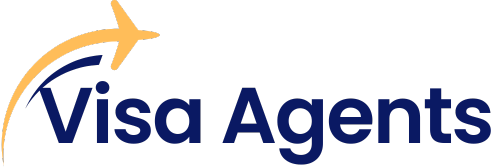No. A confirmed hotel booking and flight ticket are supporting documents only, not guarantees of visa approval. While embassies request these documents as proof of a concrete travel plan, they remain just one factor among many in the visa decision-making process. Rejections occur regularly despite having confirmed bookings.
Why Hotels & Tickets Are Not Guarantees
Hotels and flight bookings serve several purposes in a visa application:
Proof of Intent: They demonstrate you have a genuine, detailed travel plan and are not applying speculatively. Determining Visa Validity: The dates on your bookings help visa officers decide how long your visa should be valid. Preventing Overstaying: They help convince embassies that you will return home by your departure date, as shown on the flight ticket.
However, these documents do not assess your eligibility to receive a visa. They show planning but not financial capacity, genuine purpose, or trustworthiness.
Real-World Evidence: Rejections Despite Perfect Bookings
Recent data from Dubai, a destination where visa rejections were nearly nonexistent until 2024, reveals the reality:
Dubai Visa Crisis (2024-2025): Rejections have surged from a historical 1-2% rate to 5-6% of daily applications. Critically, these rejections occur even when applicants attach confirmed hotel bookings and flight details. One travel agency director reported: “Even when confirmed flight tickets and hotel stay details are attached, the visa applications are being rejected”.
In documented cases, a family of four with meticulously prepared applications including confirmed hotel bookings and flight details had their visas rejected. Another couple lost ₹50,000 on non-refundable flights and hotel bookings when their visas were denied despite all documents being in order.
US Visa Rejections: Indian applicants face a 30-40% rejection rate for visitor visas, with many having solid travel plans but lacking other required elements.
What Actually Determines Visa Approval
Visa officers evaluate applications using a weighted scoring system where the relative importance of factors breaks down as follows:
Financial Proof (28% weight): The most critical factor. Visa officers verify you have sufficient funds to:
-
Cover all travel expenses (flights, accommodation, meals, activities)
-
Support yourself during the stay without becoming a public charge
-
Return home if needed
-
Insufficient funds remains the single most-cited rejection reason
Purpose of Travel & Statement of Purpose (18% weight): A clear, convincing explanation of why you’re traveling is essential. Weak or vague statements trigger suspicion about overstaying intentions.
Consistent Information (17% weight): Every document must align perfectly—application form, passport, airline ticket, hotel booking, visa, employment letter, bank statements, and interview responses. Even minor inconsistencies between documents can lead to rejection.
Interview Performance (15% weight): In countries requiring interviews (US, Canada, Schengen, UK), how you respond to questions significantly impacts approval. A failed interview can override strong documentation.
Home Country Ties (12% weight): Demonstrating strong reasons to return home—employment, property, family, educational commitments—is critical for short-term visas.
Hotel & Flight Bookings (5% weight): Despite their prominence in application requirements, these documents carry only ~5% weight in the final decision.
Valid Passport & Complete Application (5% weight): Mandatory but assumed to be present.
Why Visas Get Rejected Despite All Documents
Subjective Visa Officer Discretion: Consular officers have considerable subjective authority to approve or deny visas, even with identical documentation. The same documents approved one spouse but not the other in documented cases.
Profile-Based Decisions: Certain profiles attract higher scrutiny:
-
Young, unmarried women (overstaying concerns)
-
Self-employed/freelancers (income instability)
-
Applicants from certain regions (country-specific risk assessments)
-
First-time international travelers (no visa history)
Algorithmic Flagging: Many countries now use risk-assessment algorithms that flag applications for manual review based on patterns. A borderline profile with one risky element can trigger automatic rejection.
Stricter Enforcement Post-COVID: Countries have tightened rules against visa misuse and overstaying. New requirements introduced by UAE and other nations have dramatically increased rejection rates despite unchanged documentation submission processes.
Common Mistakes That Lead to Rejection (Even With Bookings)
Inconsistent Travel Dates: Your insurance ends one day before your return flight, or begins after your arrival—these mismatches signal carelessness and raise fraud concerns.
Name Mismatches: Your ticket shows “Arun Kumar” but your passport shows “Kumar Arun” or just “Kumar”—immediate denial.
Weak Financial Proof: Bank statements show the required amount, but only deposited days before the application. Officers expect to see consistent savings history.
Vague Purpose Statement: “I want to tour Europe” without specific details triggers overstaying concerns.
No Home Ties Documentation: No employment letter, property deed, family proof, or other evidence you’ll return home.
Artificial Bookings: Using “dummy” or placeholder bookings without genuine intent, or dummy bookings that don’t match other documents, raises authenticity concerns.
Best Practices to Maximize Approval Odds
-
Book AFTER visa approval or use refundable/flexible options: Avoid financial loss if your visa is rejected.
-
Ensure document consistency: Every detail (name, dates, addresses) must match across all documents—application form, passport, tickets, hotel bookings, insurance, employment letter, and bank statements.
-
Demonstrate strong financial proof: Show 3-6 months of consistent bank statements, ideally with a buffer above your stated trip expenses.
-
Provide a detailed, convincing purpose statement: Explain specifically what you’ll do, where you’ll go, and why—not just “tourism”.
-
Establish home country ties: Provide employment letter, property deed, family documentation, and educational commitments.
-
Plan travel insurance dates carefully: Begin from your flight departure date and end on your return date, matching exactly with your bookings.
-
Prepare for potential interviews: Anticipate questions and ensure your verbal answers match your written application

Leave a Reply